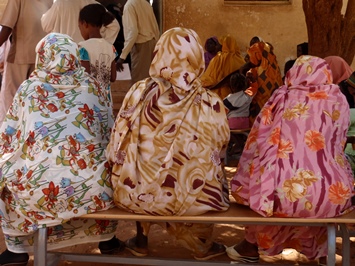UN urged to boost protection for women’s rights campaigners in Horn of Africa
November 18, 2013 (KHARTOUM) – An East African rights group has called on the UN to approve a resolution on the protection of women human rights defenders (WHRDs), saying recognition for campaigners in the Horn of Africa was “long overdue”.

The Strategic Initiative for Women in the Horn of Africa (SIHA) said WHRDs have long been excluded from the human rights arena, often struggling for recognition as actual rights defenders.
“Far too often, violence against women and women’s rights as a whole are treated as separate and distinct … The truth is that there is no distinction between women’s rights and human rights, except in the breadth, scale and dynamics of abuse”, SIHA said in a statement issued on last Friday
SIHA, a network of civil society organisations from Sudan, South Sudan, Somalia, Somaliland, Ethiopia, Eritrea, Djibouti, and Uganda, said WHRDs were often on the frontline in the fight for women’s rights in their communities and that the resolution would help legitimise their important role.
“It is important to realise that WHRDS are among the most instrumental actors with genuine interest in the application of universal human rights. Hence any recognition by the UN in the form of this resolution is not just valuable, but long overdue”, said SIHA regional director Hala Alkarib.
According to SIHA, the fraught political landscape throughout much of the Horn of Africa – a region characterised by customary laws, religious militancy and conservative traditions – left women vulnerable to rights violations and oppression.
WHRDs, particularly in Sudan, Somalia and Ethiopia, are also increasingly being targeted by authorities, and often find themselves ostracised from their communities.
In South Sudan, SIHA members have been arrested for speaking out against police brutality, while in Somalia, WHRDs who documented sexual violence suffered harassment and threats.
“Unfortunately, WHRDs often find themselves working in isolation having limited access to protection strategies and trainings. The list of WHRDs who have suffered at the hands of both state and non-state actors, by community and family members is tragically far too long to detail”, SIHA said in its statement.
“Too often, women activists face questions and challenges over their moral standing with many called family breakers, divorced and loose women in a bid to delegitimise their work”, it adds.
The scale of risks faced by WHRDs face was detailed in a report by the UN special rapporteur on human rights defenders. These included arrest, torture, criminalisation, wrongful sentencing, stigmatisation, attacks, death threats and killings, and rape. The special rapporteur reported that family members of WHRDs are also often targeted.
SIHA said it had also heard testimonies from WHRDs whose daughters had been raped and husbands arrested.
“All too often, SIHA has identified and supported WHRDs persecuted for demanding the realisation and protection of human rights, both for fellow women, and for their broader communities”, SIHA said.
SIHA has urged all heads of state at the general assembly to not only approve the resolution, but to actively apply its principles within their state.
It said the resolution was an important tool in recognising the role of WHRDs, not just in the Horn, but globally.
“The realisation of this resolution is essential to the creation of a just and equitable society and the capacity for women to be equal and free actors in the protection of human rights for all”, SIHA said in its statement.
“Such a resolution … serves to enhance and reinforce the scope and necessity of protection of WHRDs who are at the forefront of protecting human rights in their communities”, it adds.
The calls come as Sudan was identified as one of the worst countries in the Arab states for women’s rights, in a poll of various gender experts last week.
Sudan was ranked 17th out of 22 countries included in the poll by the Thomas Reuters Foundation.
It found that Sudanese women routinely face domestic abuse, child marriage, marital rape and genital mutilation.
(ST)
